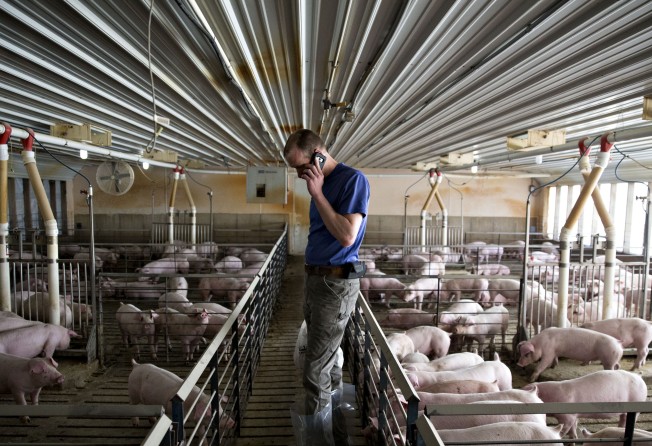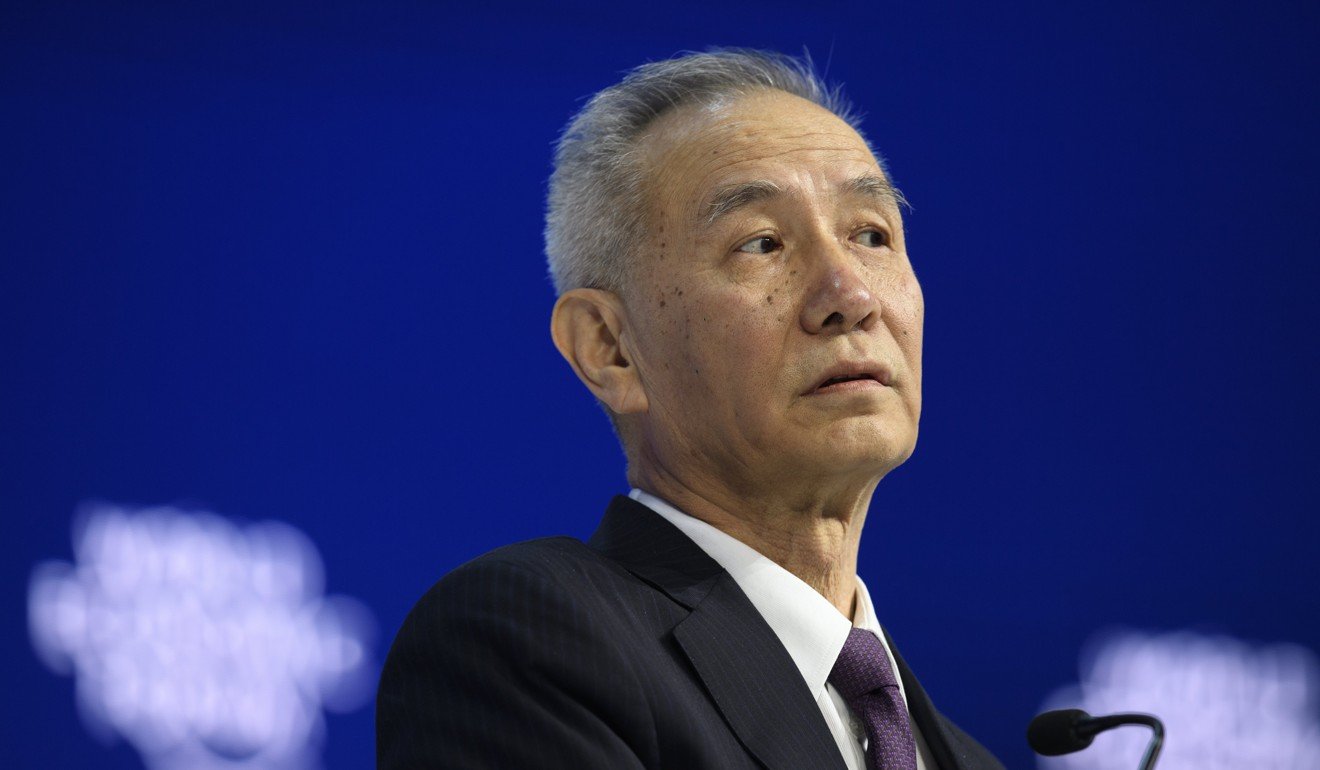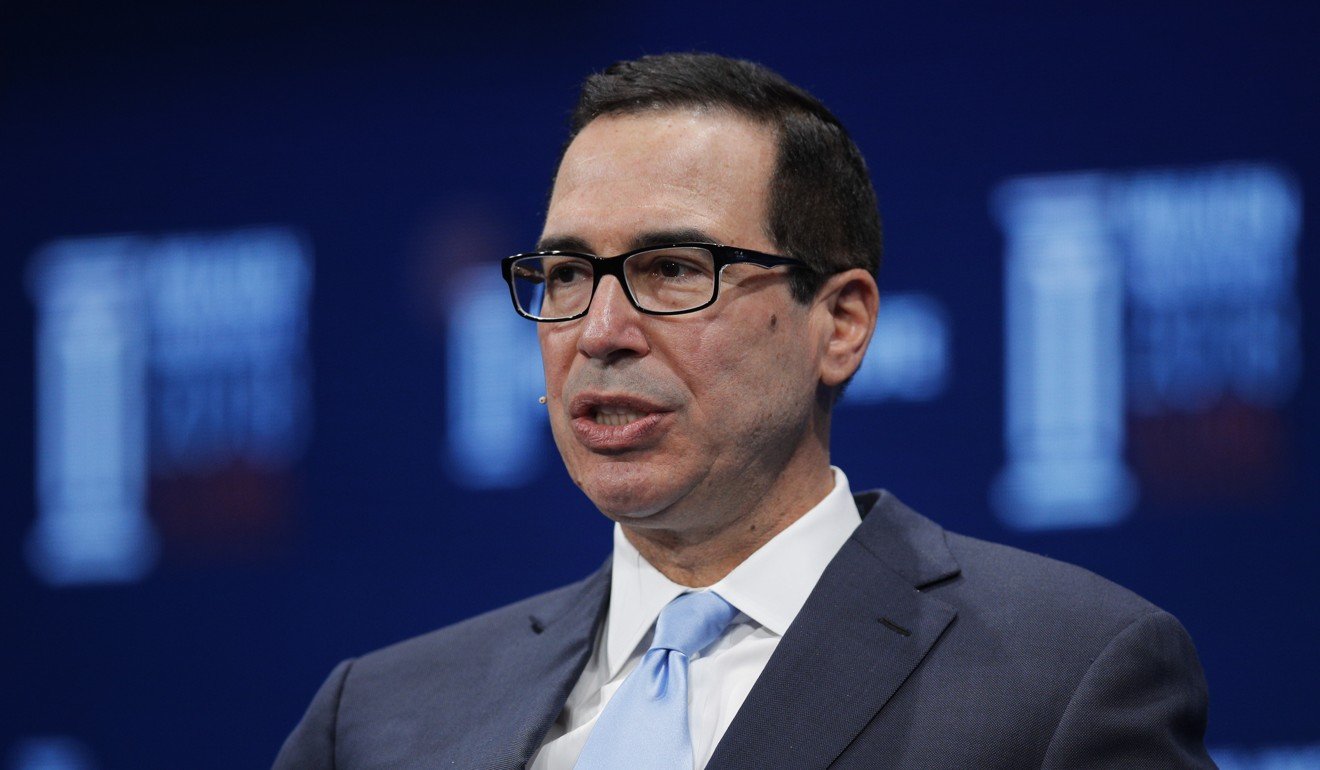America will alter or delay China tariffs as trade war threat to Donald Trump’s base becomes clearer, predicts ex-US trade official
Wendy Cutler said in a talk that the Trump administration will narrow its action after negotiating with China, while Rhodium’s Daniel Rosen suggested differing views within US delegation could delay final decisions

The United States will alter a list of Chinese products targeted for import tariffs, or delay imposing the fees altogether, as it becomes clearer that there is the potential for economic and political blowback against President Donald Trump’s administration, a former US government trade official predicted on Thursday.
In total, US$50 billion worth of imported Chinese products face punitive US tariffs in the coming weeks if the US and China do not reach an agreement in the high-level meetings that started in Beijing on Thursday.
But Wendy Cutler, a former acting deputy US trade representative, said: “I think there will be adjustments in this list.”
“They’re going to spend some time looking at the comments that have been received because while I think the administration has tried very hard to come up a tariff list that will hurt China more than the United States, I think a number of these comments will reveal that US businesses with US workers will be affected.”
Cutler, who now serves as managing director of the Asia Society Policy Institute’s Washington office, was responsible for negotiations leading to the Trans-Pacific Partnership under former President Barack Obama. Trump pulled the US out of the TPP soon after taking office last year.
Her remarks came during a panel discussion at the New York-based Asia Society.
Cutler had warned in February of “imminent” retaliatory trade measures by the Trump administration, several weeks before it put punitive tariffs on steel and aluminium and then published a list of some 1,300 categories of Chinese imports that would be subject to sharply higher taxes after a period of public comment, which expires on May 22.
I think a number of these comments will reveal that US businesses with US workers will be affected
“Even after the adjustments are made, the administration can delay imposition of tariffs. They can say ‘we are in negotiations, we’re going to suspend this investigation’,” Cutler said.
“The tariffs are on the horizon and the administration will need to make the call about if and whether they should actually impose these tariffs, and I suspect a lot of that call will be based on what they hear in Beijing this week.”
Cutler spoke hours after a first day of trade negotiations, led by Chinese Vice-Premier Liu He and US Treasury Secretary Steven Mnuchin, whose delegation of seven officials includes Commerce Secretary Wilbur Ross and Trade Representative Robert Lighthizer.

Lighthizer led the so-called Section 301 investigation into China’s intellectual property rights enforcement and technology transfer requirements, which prompted his department to identify which Chinese imports to target.
That list, mostly machinery and electronics, was announced on April 2. China responded by announcing it would impose the same amount of tariffs on American products including cars, aircraft and agricultural goods.
Cutler and Rhodium Group founder Daniel Rosen, who spoke with her at the Asia Society event, noted how much pressure Trump’s punitive trade action has put, and will put, on a range of US industries. Rhodium is a China-focused management consultancy and publisher.
“Globalising international trade had this terrifically good impact on consumers everywhere. Stretching that consumer dollar from Kentucky to Kyoto was a global reality,” Rosen said.
“If we put this thing into reverse and go beyond just this tit-for-tat brinkmanship to really starting to disassemble the kind of production chains we’ve built over the past three decades, that’s going to impose an inflationary drag on all of us.”
Among the 1,300 targeted Chinese products on the list, which was assembled by the US trade representative’s office, are injection-moulding machines, gears, flywheels and chain sprockets, electrical transformers and many other components for consumer and industrial products. Fully assembled vehicles such as motorcycles, railway locomotives and helicopters are also included.
“What I’m hearing particularly in the agricultural community is that planting season is coming up and so there’s a lot of uncertainty in the [agricultural] markets,” Cutler said.
“If there’s no [North American Free Trade Agreement] and they lose those markets and they find themselves in the cross hairs of a US-China trade war, they will vote in the states that delivered President Trump to his office.”
Cutler and Rosen also said that the composition of the US trade delegation, which includes officials with differing views about the right way forward on punitive action, means that final decisions on tariffs will not be made until long after the group has left Beijing.

“There’s not a unified position among the administration” on how to proceed with trade action against China, Cutler said.
“Overall they share the same concerns, but I think there are differences in views in terms of what a negotiated solution should look like, or even whether there should be a negotiated solution.”
For example, Mnuchin, with his long background in investment banking, is largely a free-trade partisan. White House trade adviser Peter Navarro, however, has urged a hard line against China, citing what he called in a recent editorial incontrovertible evidence of Beijing’s illicit and protectionist behaviour”.
Rosen said that all the “fractures and differences within this team of rivals” would make consensus within the group difficult and turns predictions into the outcome guesswork.